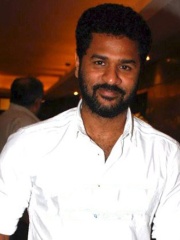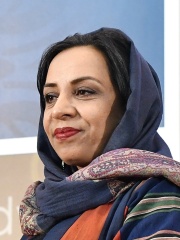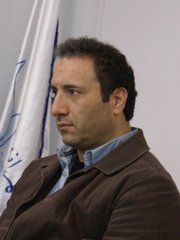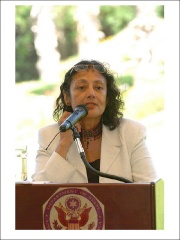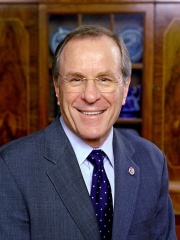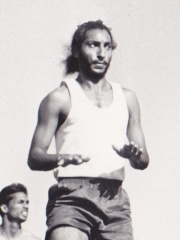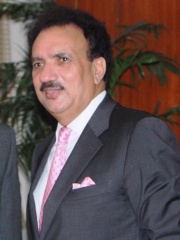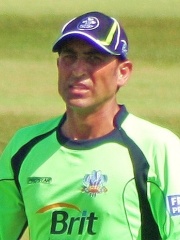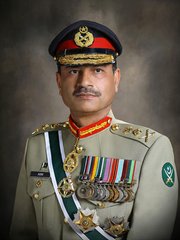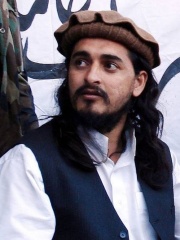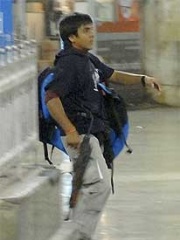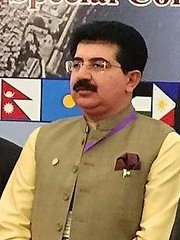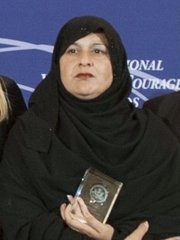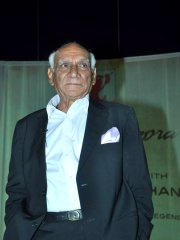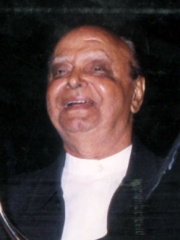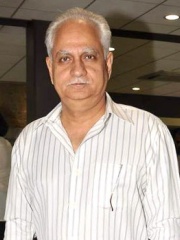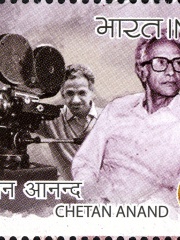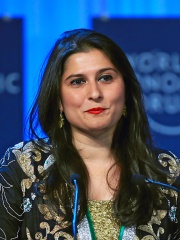Film Director
Govind Nihalani
1940 - today
EN.WIKIPEDIA PAGE VIEWS (PV)
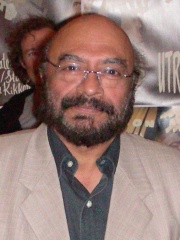
 Govind Nihalani
Govind Nihalani
His biography is available in 17 different languages on Wikipedia (up from 15 in 2024). Govind Nihalani is the 2,073rd most popular film director (down from 1,905th in 2024), the 183rd most popular biography from Pakistan (down from 156th in 2019) and the 7th most popular Pakistani Film Director.
Memorability Metrics
Page views of Govind Nihalani by language
Among Film Directors
Among film directors, Govind Nihalani ranks 2,073 out of 2,041. Before him are Prabhu Deva, Sean Gullette, Roya Sadat, Reza Mirkarimi, Paula Ortiz, and Celine Song. After him are Jenji Kohan, Tim Minear, Susannah Grant, Derek Cianfrance, Farhan Akhtar, and Zoe Cassavetes.
Most Popular Film Directors in Wikipedia
Go to all RankingsPrabhu Deva
1973 - Present
HPI: 42.44
Rank: 2,067
Sean Gullette
1968 - Present
HPI: 42.42
Rank: 2,068
Roya Sadat
1983 - Present
HPI: 42.40
Rank: 2,069
Reza Mirkarimi
1967 - Present
HPI: 42.38
Rank: 2,070
Paula Ortiz
1979 - Present
HPI: 42.37
Rank: 2,071
Celine Song
1988 - Present
HPI: 42.36
Rank: 2,072
Govind Nihalani
1940 - Present
HPI: 42.35
Rank: 2,073
Jenji Kohan
1969 - Present
HPI: 42.34
Rank: 2,074
Tim Minear
1963 - Present
HPI: 42.33
Rank: 2,075
Susannah Grant
1963 - Present
HPI: 42.32
Rank: 2,076
Derek Cianfrance
1974 - Present
HPI: 42.31
Rank: 2,077
Farhan Akhtar
1974 - Present
HPI: 42.26
Rank: 2,078
Zoe Cassavetes
1970 - Present
HPI: 42.25
Rank: 2,079
Contemporaries
Among people born in 1940, Govind Nihalani ranks 620. Before him are David Broome, Bharati Mukherjee, Roger K. Crouch, Connie Mack III, Ted Kulongoski, and Madam Auring. After him are Don Imus, Tim Drummond, and Rafael Quintero.
Others Born in 1940
Go to all RankingsDavid Broome
ATHLETE
1940 - Present
HPI: 45.61
Rank: 614
Bharati Mukherjee
WRITER
1940 - 2017
HPI: 45.03
Rank: 615
Roger K. Crouch
ASTRONAUT
1940 - Present
HPI: 43.86
Rank: 616
Connie Mack III
POLITICIAN
1940 - Present
HPI: 43.33
Rank: 617
Ted Kulongoski
POLITICIAN
1940 - Present
HPI: 43.02
Rank: 618
Madam Auring
ACTOR
1940 - 2020
HPI: 42.76
Rank: 619
Govind Nihalani
FILM DIRECTOR
1940 - Present
HPI: 42.35
Rank: 620
Don Imus
PRESENTER
1940 - 2019
HPI: 41.96
Rank: 621
Tim Drummond
MUSICIAN
1940 - 2015
HPI: 41.31
Rank: 622
Rafael Quintero
ATHLETE
1940 - 2006
HPI: 40.20
Rank: 623
In Pakistan
Among people born in Pakistan, Govind Nihalani ranks 183 out of NaN. Before him are Prithipal Singh (1932), Rehman Malik (1951), Younis Khan (1975), Chris Anderson (1957), Asim Munir (null), and Hakimullah Mehsud (1979). After him are Ajmal Kasab (1987), Saba Mahmood (1961), Sadiq Sanjrani (1970), Usman Khawaja (1986), Jahangir Khan (1963), and Tabassum Adnan (null).
Others born in Pakistan
Go to all RankingsPrithipal Singh
ATHLETE
1932 - 1983
HPI: 43.46
Rank: 177
Rehman Malik
POLITICIAN
1951 - 2022
HPI: 43.40
Rank: 178
Younis Khan
CRICKETER
1975 - Present
HPI: 42.87
Rank: 179
Chris Anderson
BUSINESSPERSON
1957 - Present
HPI: 42.85
Rank: 180
Asim Munir
MILITARY PERSONNEL
HPI: 42.81
Rank: 181
Hakimullah Mehsud
EXTREMIST
1979 - 2013
HPI: 42.59
Rank: 182
Govind Nihalani
FILM DIRECTOR
1940 - Present
HPI: 42.35
Rank: 183
Ajmal Kasab
EXTREMIST
1987 - 2012
HPI: 42.02
Rank: 184
Saba Mahmood
ANTHROPOLOGIST
1961 - 2018
HPI: 41.89
Rank: 185
Sadiq Sanjrani
POLITICIAN
1970 - Present
HPI: 41.56
Rank: 186
Usman Khawaja
CRICKETER
1986 - Present
HPI: 41.20
Rank: 187
Jahangir Khan
POLITICIAN
1963 - Present
HPI: 41.20
Rank: 188
Tabassum Adnan
SOCIAL ACTIVIST
HPI: 41.11
Rank: 189
Among Film Directors In Pakistan
Among film directors born in Pakistan, Govind Nihalani ranks 7. Before him are Yash Chopra (1932), Gulzar (1934), Shekhar Kapur (1945), Ramanand Sagar (1917), Ramesh Sippy (1947), and Chetan Anand (1915). After him are Sharmeen Obaid-Chinoy (1978).
Yash Chopra
1932 - 2012
HPI: 56.79
Rank: 1
Gulzar
1934 - Present
HPI: 55.27
Rank: 2
Shekhar Kapur
1945 - Present
HPI: 54.10
Rank: 3
Ramanand Sagar
1917 - 2005
HPI: 49.09
Rank: 4
Ramesh Sippy
1947 - Present
HPI: 47.77
Rank: 5
Chetan Anand
1915 - 1997
HPI: 45.18
Rank: 6
Govind Nihalani
1940 - Present
HPI: 42.35
Rank: 7
Sharmeen Obaid-Chinoy
1978 - Present
HPI: 37.28
Rank: 8
